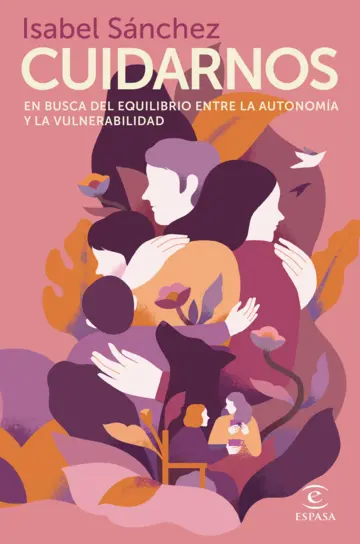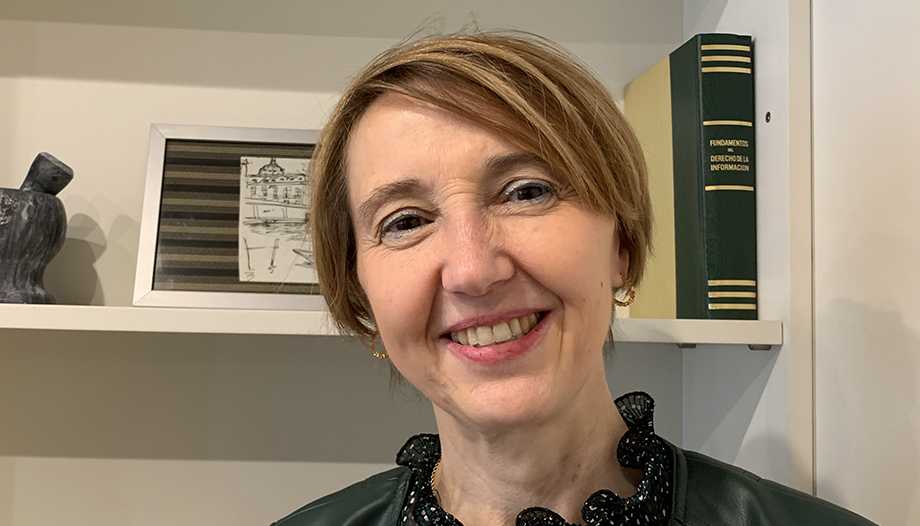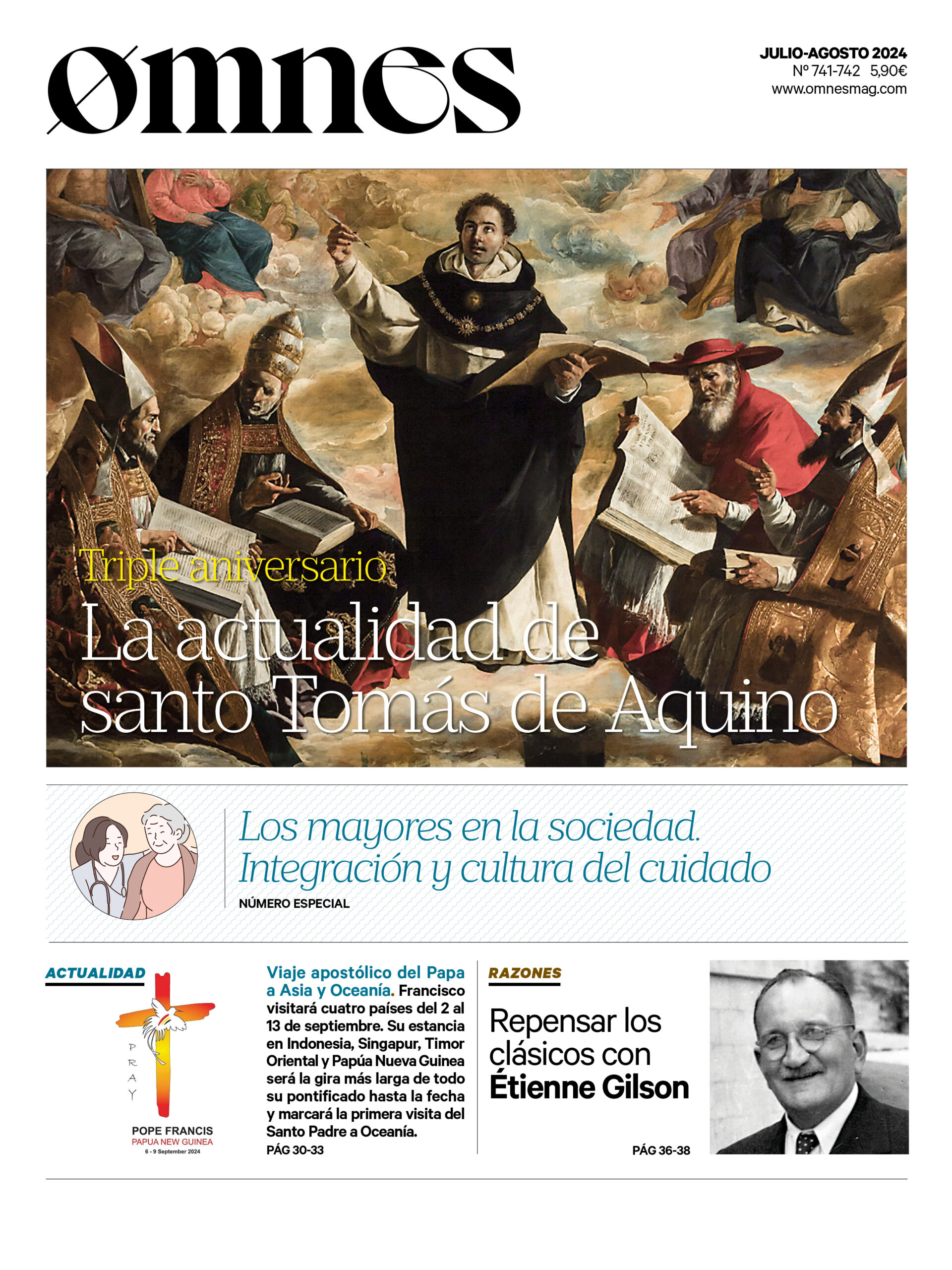




















A few years ago, "the most powerful woman in Opus Dei," as some media described her, was diagnosed with cancer. The world was just recovering from the COVID19 pandemic and Isabel Sanchez began a period in which hospitals, nurses, oncologists and waiting rooms became part of her daily routine.
As she herself recalls, "I thought I was fine and then suddenly your body takes over. At the time, she had just published her book Women Compass in a forest of challenges and, seeing herself in the skin of the "caregiver", of the person who needs to be cared for physically and also emotionally, led her to conceive the idea of Taking care of ourselvesher second book in which she deals specifically with the greatness of care and the caregiver, as well as the need for a caring and affectionate society.
Of all this, Isabel Sanchez has spoken in this interview with Omnes, in which he highlights, among other things
Every book has a process. In the case of Taking care of ourselvesHow does it go from idea to writing?
-The germ is in Women Compass in a forest of challenges. Already there I begin to consider the challenges of the society in which I live. I become more aware of all that teaching of Pope Francis about the throwaway culture which is complemented by the teaching of St. John Paul II on life. Above all, it is influenced by Pope Francis' constant reminder that we live at the crossroads between discarding and caring. That constitutes the heart of this book.
Along with all of this, life - with illness - puts you in the position of be cared for and you realize that not all of us have this mentality. Especially when you feel more autonomous, which is what happened to me.
I was diagnosed with a serious illness at a time when I could have sworn I was doing great. Then, you realize that you are one of millions of women with that same diagnosis and that same reality. And not just because of a serious illness, but we're all going to have to be cared for.
Why do we deny this obvious reality?
-I think we are heading towards a society that is going to implode. They will not be able to take care of us, unless we propose to rebuild it in a different way, both in infrastructure and in economy, etc. ..... And especially, to rebuild it from the bottom up, in terms of heart, in terms of culture.
Our society, as it has commoditized the person, has commoditized everything, including care. What is the option that it presents as the quickest, easiest and that disguises as more dignified?: "Choose to die". I find it distressing that, in the 21st century, with all the technical advances, with the educational capacity that we have, that is our poor response and we cannot say, "your life is worthwhile until the end and it is worthwhile for me, state; for me, neighbor; for me, relative... and for yourself. We all agree, let's take care of it."
It speaks of a cultural changeIsn't it a utopian approach?
-It's a thing of many years, of course. But if they rob us of that ability to dream, it's over!
The book is, in part, a small seed of revolution, of continuing a revolution that is not mine but has been started by many factors: thinkers, the promoters of the ethics of care, the Christian current for 21 centuries and a Pope who amplifies all this message.
Of course you can! There are a lot of passionate caregivers working on this.


Taking care of ourselves
Yet, do we still see care as a burden?
-Because sometimes it is a burden.
In the book, care is treated as flourishing, fatigue and feast. But there is fatigue. Much more if there is no social recognition, if there is no valorization, retribution. So, yes, it is a burden. We can and must change that.
How to balance the role of caregiver and caregiving?
I think we lack reflection on what a cared-for person brings. That's why we sometimes feel useless, or like a brake. We are so imbued with the logic of productivity, of efficiency, of a mercantile logic, after all, that it seems to us that, if we do not provide production, results, economy, we are not contributing.
However, a person being cared for brings humanity, brings the possibility of mercy, brings gratuitousness, and the opportunity for gratuitousness for the caregiver.
A person who allows himself to be cared for well, with gratitude, with justice - which means that he demands the necessary care and not others - has much to contribute. Sometimes the person being cared for lacks that reflection of self-awareness of the value he or she contributes in that position.
Is that a reflection that only the person being cared for can make?
-It is essential to do it together. Because if the one who is cared for considers that he/she is contributing, but the other does not recognize it.....
A virtuous circle can be established between the caregiver and the cared-for person. A new relationship emerges, which brings something new to humanity. And what it brings is precisely magnanimity in the caregiver and great humanity.
This technological world cannot lead us to a state of coldness, without feelings, without space for that amalgam of autonomy and vulnerability that is fully human.
You talk about the pandemic, about pain as an opportunity. Is it always better to come out of pain?
-I think the pain, the impact, is a great opportunity. All revolutions start from pain. That's the way it is. We have become such a fast-paced, superficial, scattered world that we don't take advantage of those opportunities.
The pandemic has been a great shock, it has made us aware of many realities. I do believe that there are people who have changed for the better after the pandemic and things that can change for the better. Perhaps it is still early days and, in addition to this, we had deep-rooted habits of individualism, indifferentism...
The worst pandemic we suffer from is superficiality, not having time to reflect and think about what personal consequences I draw from these situations. In order to get a better society out of the pandemic, we have to come out better each one of us. That is a personal choice and we still have time.
It happens to me too, that I try to reflect, and not infrequently I have to stop and ask myself again: "Me, did I come out better?" And the light comes on, because I had already forgotten this question, due to the acceleration we are going through. That light tells me "Remember! You've already had two strokes that tell you about the important things you have to prioritize". It is a way to be better, but you have to set your mind to it.
God is a great caregiver and cares for each one of us.
Isabel Sanchez. Author of "Taking Care of Ourselves".
Are we aware that we need the other? Do we "hide" from this need?
-I would say yes. It was very eye-opening for me to see a series of Christmas commercials, at the time of the pandemic, and the theme was bonds, relationships. In all of them.
This year, for example, they told us how happy they were to have people to share their joys with. No one can erase that longing that we have so strongly. We want that. So why not build a world that allows us to have it? Why are we betting on divorce? expressWhy don't we invest our best energies in preserving the relationship with the other so as not to discard it so quickly?
We have a journey to make: reflect and build. This is the proposal of the book.
As a person dedicated to God in Opus Dei, can we build a linked society without ending in God?
-Man has a great longing for God. When we speak of a longing for communion, for truly entering into the other, for someone who makes us grow, who watches over us, who values us..., perhaps without faith we are imagining someone "perfect" and unattainable. But what happens is that, deep down, we are infinite and this can only be filled by an infinite.
The good news is that God is a great caretaker and is looking out for everyone. He is saying, "I want you to fulfill all those desires you have. Let me be close. Let me bet on you, because all I'm going to do is affirm you."












